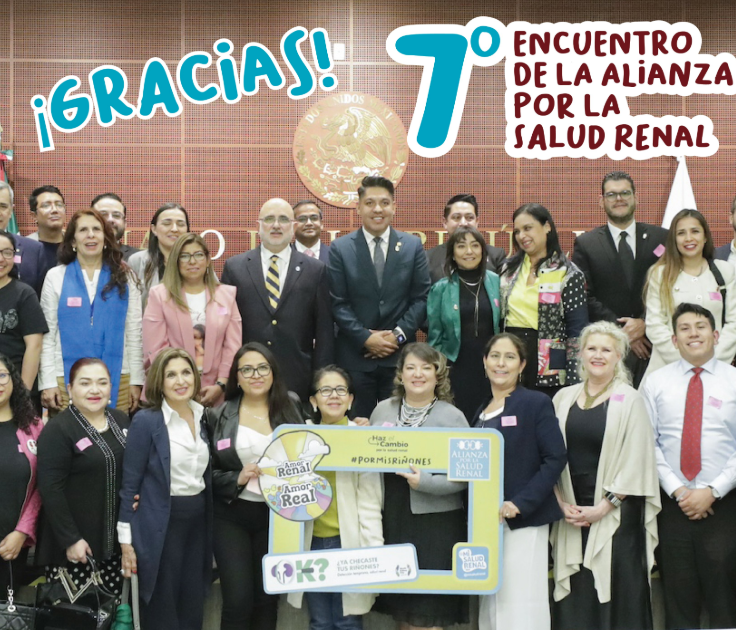On February 6, 2025, kidney health stakeholders joined together at the Senate building in Mexico City for the seventh annual Meeting of the Alliance for Kidney Health to address the national burden and impact of kidney disease. The policy forum explored the value of early intervention to slow kidney disease progression.
Senator Emmanuel Reyes Carmona addressed the meeting and highlighted the importance of strengthening care for kidney diseases, and the progress and challenges of building a more inclusive and efficient health system in Mexico.
Representatives from Mexico’s Senate Health Commission, the Global Patient Alliance for Kidney Health, the Pan American Health Organization and other leaders in nephrology were present, sharing experiences, research and goals to advance kidney health in Latin America and beyond. Participants discussed the importance of access to screening, early detection and treatment, along with the role of home dialysis and clinician knowledge sharing to improve kidney disease prevention.
The Value of Early Detection and Screening
Access to screening and early detection and treatment are crucial to prevent further complications with many non-communicable diseases, including chronic kidney disease. Citing a policy brief from the Global Patient Alliance for Kidney Health, nephrologists and participants at the meeting underscored the costly and devastating impacts of kidney disease, encouraging lawmakers to prioritize secondary prevention through access to screening for at-risk populations as well as access to early-stage treatments.
Mexico is among the countries with the highest mortality for chronic kidney disease. Dr. Correa-Rotter of National Institute of Medical Sciences and Nutrition Salvador Zubirán, Mexico, shared data on how early detection is a critical strategy in reducing costly and intensive long-term care. When treated and detected early, chronic kidney disease progression can be significantly delayed.
Screening programs and early medical treatment have become a goal for many countries seeking to address the growing burden of kidney disease. Dr. Jose Manuel Arreola, Director of the Institute for Comprehensive Care of Kidney Diseases of the State of Aguascalientes, articulated how being proactive can improve early detection and patient outcomes, similar to successful vaccination campaigns. He noted how having clear protocols for clinicians and accessible messages to the public were key in providing optimum care. “Only through a coordinated and sustained effort,” he said, “can we transform the landscape of chronic kidney disease in Mexico.”
The Power of the Patient’s Lived Experience
The forum also included a presentation from a kidney patient, Anahi Soto. She shared her journey with kidney disease, beginning with a diagnosis at 9 years old. She spoke on how those living with non-communicable diseases must be at the forefront of global health policy conversations. She emphasized the social, educational, and emotional impact of kidney disease and urged better empathy and dignity for patients.
The Need for Integrated Action
Working for kidney health is not the sole responsibility of patients or doctors, but rather an integrated effort between clinicians, decision makers and industry professionals dedicated to patient-centered care. Kidney health stakeholders in Mexico highlighted the importance of coordinated efforts to make the change for kidney health. Read the full event report here.

